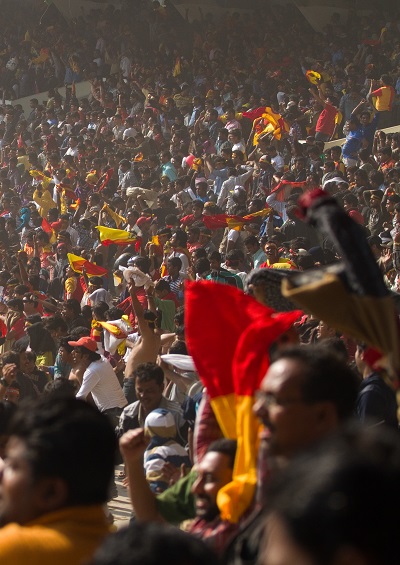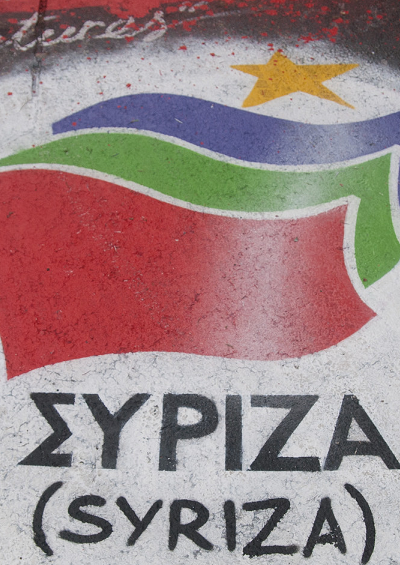Football in Kolkata
A 90 year old rivalry between two Indian football teams continues today.
January 24, 2015

Photography, painting and creative writing have been Saswata Kar’s passion from a very young age. Currently an information technology consultant, Saswata Kar’s ambition is to be a photographer and writer.
East Bengal against Mohun Bagan at Kolkata’s Salt Lake Stadium is the biggest derby in Indian football, attended by up to 100,000 people.
The two teams meet at least four times a year in league encounters – more if they clash in cup competitions. Their supporters care little about a new low FIFA ranking for India’s national team or news from Real Madrid or Manchester United. All that matters is their next derby.
The sides first played in 1925, and have clashed more than 300 times since. According to the most recent count, East Bengal has won 115 games, Mohun Bagan has won 85, and 105 have been drawn. A 1997 Federation Cup semi-final between them drew India’s largest ever football crowd: in front of 131,000 spectators, East Bengal won 4-1.
Both Kolkata-based, the two teams originally drew on different segments of society. Mohun Bagan was followed by people from western Bengal, while East Bengal’s supporters came from the east, in what now is Bangladesh.
Those distinctions have weakened over the decades. What hasn’t is that both team’s fans come from the bottom ranks of Indian society, working as laborers, rickshaw pullers, security guards or small-shop owners.
Most live below the poverty line, but hard as it may be to make ends meet, they still happily pay the US$0.50 entry fee for a game, where over 90 minutes, and despite tight security, they drink illegally brewed country liquor, let off fireworks and scream the foulest slang at opposition supporters.
Text and photographs by Saswata Kar
A Mohun Bagan supporter at his team’s 299th meeting with East Bengal in November 2011. Mohun Bagan won 1-0 thanks to a first-half penalty goal by their Nigerian striker Odafa Onyeka Okolie.
 Photography, painting and creative writing have been Saswata Kar’s passion from a very young age. Currently an information technology consultant, Saswata Kar’s ambition is to be a photographer and writer.
Photography, painting and creative writing have been Saswata Kar’s passion from a very young age. Currently an information technology consultant, Saswata Kar’s ambition is to be a photographer and writer.The Other Hundred is a unique photo-book project (order here) aimed as a counterpoint to the Forbes 100 and other media rich lists by telling the stories of people around the world who are not rich but who deserve to be celebrated.
Its 100 photo-stories move beyond the stereotypes and cliches that fill so much of the world’s media to explore the lives of people whose aspirations and achievements are at least as noteworthy as any member of the world’s richest 1,000.
 Selected from 11,000 images shot in 158 countries and submitted by nearly 1,500 photographers, The Other Hundred celebrates those who will never find themselves on the world’s rich lists or celebrity websites.
Selected from 11,000 images shot in 158 countries and submitted by nearly 1,500 photographers, The Other Hundred celebrates those who will never find themselves on the world’s rich lists or celebrity websites.




